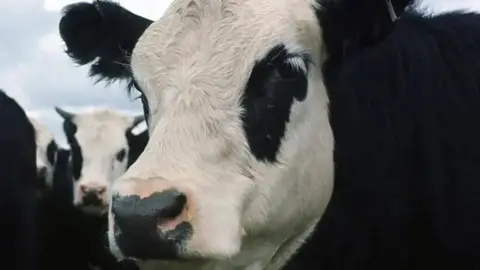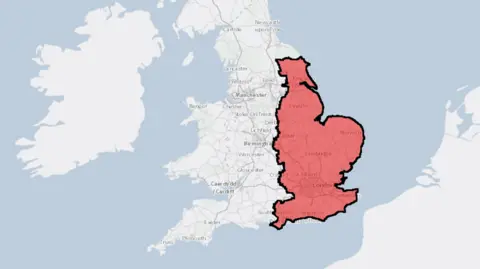Bluetongue case identified on Isle of Wight
 BBC
BBCA case of bluetongue has been found on the Isle of Wight.
The Department for Environment, Food and Rural Affairs (DEFRA) said one cow on the island was confirmed positive on Thursday following a report of suspect clinical signs.
A restriction zone brought in to help stem the spread of the virus has been extended to include much of eastern England, including the island and part of Hampshire.
Bluetongue – or BTV-3 – can cause infertility and breathing problems in some animals but does not affect people or food safety.
 DEFRA
DEFRAOther cases in cattle had been identified on the Oxfordshire-Buckinghamshire border and on the East Riding of Yorkshire and North Yorkshire border.
Norfolk and Suffolk were the first counties to be affected and restrictions there were imposed in August.
The restriction zone limits certain animal movements in a bid to curb the outbreak.
The virus is spread by midges that are often blown over from mainland Europe during spells of warm weather.
Defra said 155 cases had so far been recorded in England, up from 69 in mid-September.
What is bluetongue?
- The disease is caused by infection with the bluetongue virus, which is mainly carried by biting midges
- It affects animals including sheep, cattle, deer, goats, llamas and alpacas. It does not affect humans or food safety
- Symptoms in sheep include ulcers or sores in the mouth and nose, swelling of the lips, tongue, head and neck
- Cattle may be infectious for several weeks while showing little or no sign of disease. Symptoms include lethargy and crusty erosions around the nostrils and muzzle
- As a notifiable disease, any case of bluetongue legally must be reported
Source: Defra
You can follow BBC Hampshire & Isle of Wight on Facebook, X, or Instagram.
